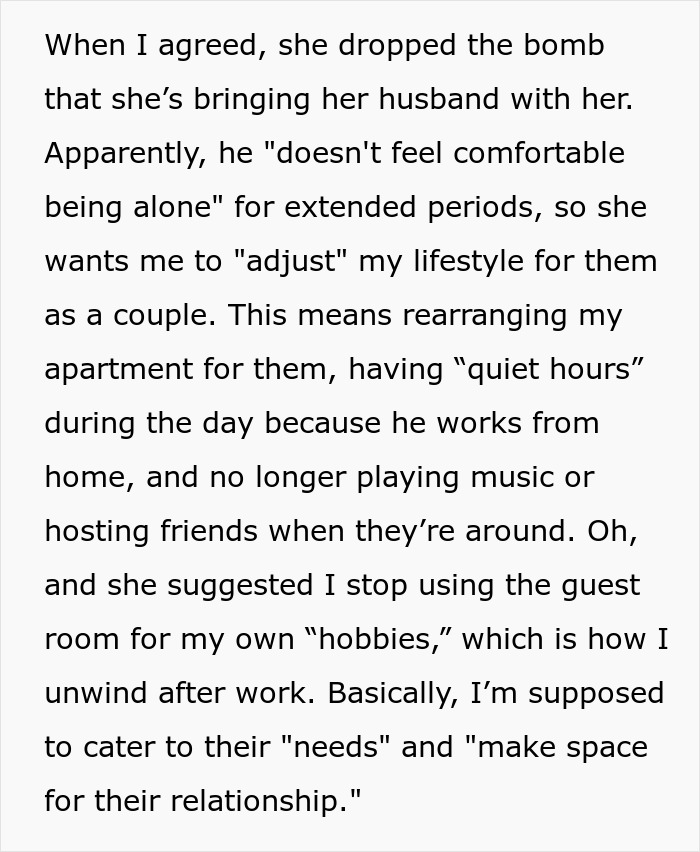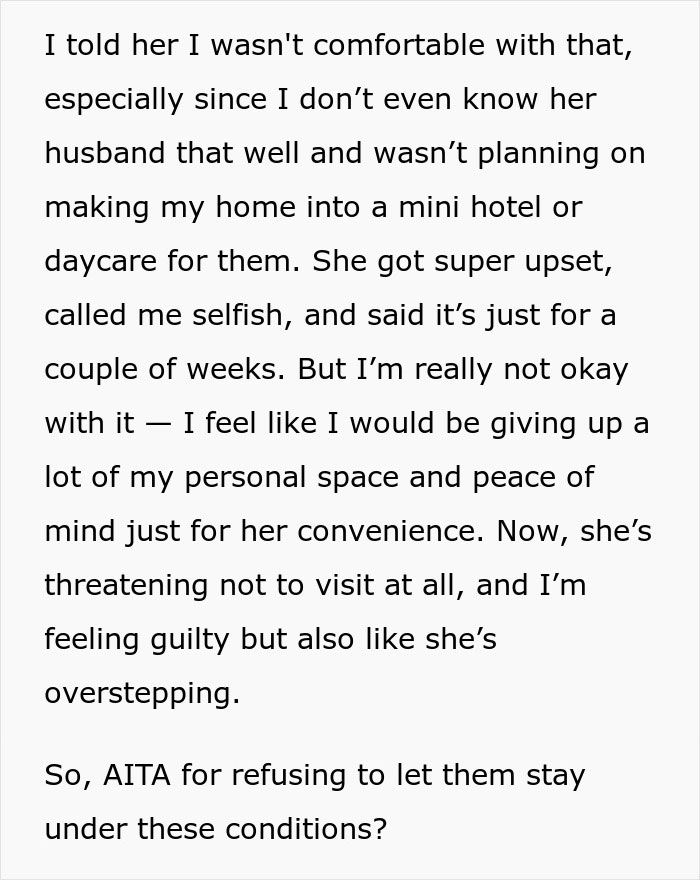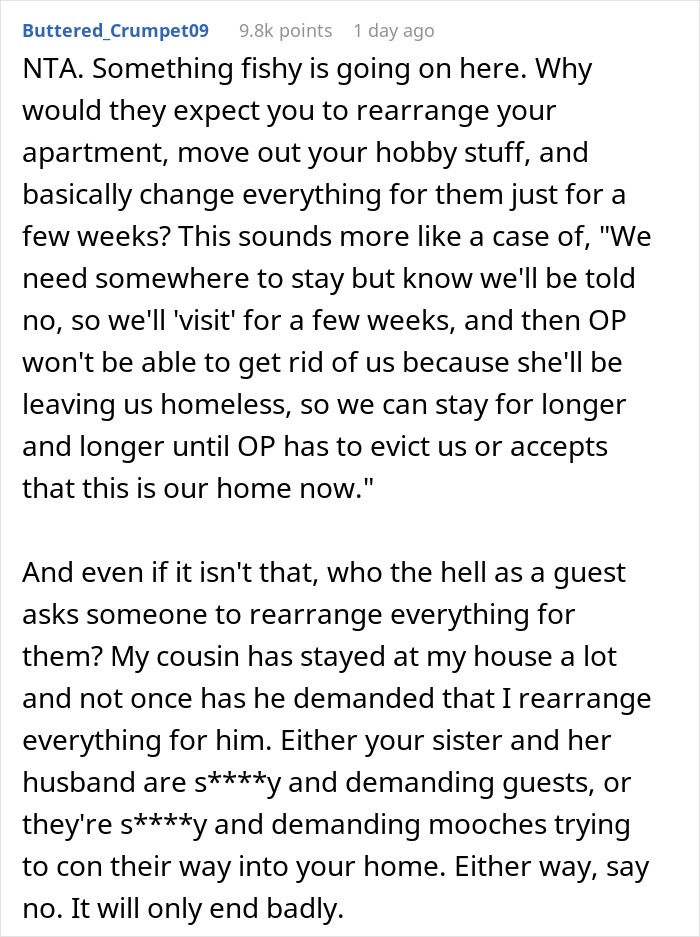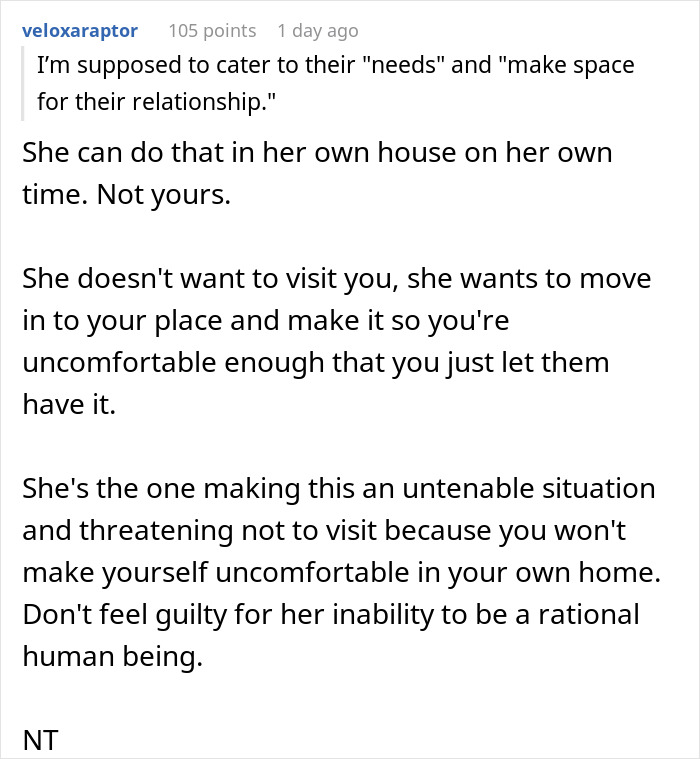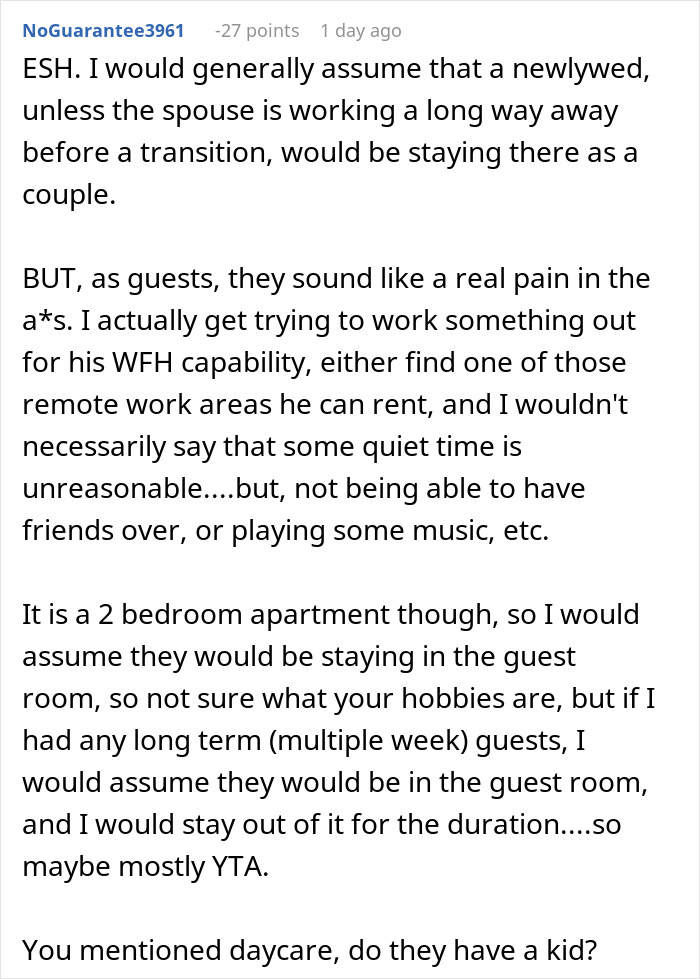
Family comes first, and it’s a privilege to help your loved ones when they’re in need. However, the line between assistance and sacrificing yourself can sometimes blur.
This is precisely the dilemma faced by Reddit user Daiyu16 faces. A few days ago, she made a candid post on the platform to describe a new unexpected challenge.
The woman was surprised when her sister asked to stay at her apartment with her new husband—and to adjust her own lifestyle to accommodate the couple’s needs.
Her story raises questions about the limits of responsibility, personal boundaries, and the cost of saying no.
Siblings often help each other, but one woman faced a dilemma when her sister asked to stay with her and bring her new husband
Image credits: prostock-studio (not the actual image)
Her initial no led to a growing conflict, and now she’s looking for a way to end it
Image credits: ufabizphoto (not the actual image)
Image credits: daiyu16
The woman needs to set up and maintain boundaries with her sister
Image credits: freepik (not the actual image)
Dr. Ilene S. Cohen, a psychotherapist who teaches in the Department of Counseling at Barry University, acknowledges that saying “no” to family can feel like an offense. But the author of the post and her sister need to settle their differences if they want to remain close. To do that, they need boundaries.
“In psychological terms, boundaries are the limits we set with other people, which indicate what we find acceptable and unacceptable in their behavior towards us,” Cohen writes. “They help define who we are and help us maintain our mental and emotional health. They are not walls to keep others out; they are guidelines that help us express our needs and expectations clearly and assertively.”
In practice, it should look like this:
Identify Your Boundaries: The first step is understanding what your boundaries are. Reflect on situations where you felt uncomfortable or disrespected. This will give you a starting point.
Communicate Clearly: Once you know your limits, express them clearly. For example, “I love hearing from you, but I need the evenings to unwind. Can we chat during the day instead?”
Say No Assertively: It’s OK to say no. You have the right to your time and energy. Remember, no is a complete sentence.
Reinforce with Actions: Your actions should match your words. Don’t pick up the phone if you’ve said no to evening calls.
Practice Patience: Setting boundaries is a process. It may take time for others to adjust. Be patient with yourself and them.
“Setting boundaries isn’t just about protecting ourselves; it’s about fostering healthier relationships,” Cohen explains. “When we set boundaries, we teach others how to treat us, but we also learn to respect the boundaries of others, leading to mutual respect and understanding. This is particularly beneficial in family dynamics, where emotions run high and lines often blur.”
The effort is worth it. Megan Gilligan, associate professor of human development and family science at the University of Missouri, analyzed survey data from hundreds of participants in the Family Transitions Project, a decades’ long study of family relationships, and found that people who reported higher levels of warmth and connection had lower levels of anxiety and depressive symptoms. And they discovered that the reverse is true as well.
Most of those who read her story said that the woman is perfectly entitled to refuse


